out of one or more syllables in a
word,
which is accompanied by the change of the force of utterance, pitch of
the voice, qualitative and quantitative
characteristics of the sound which is usually
a vowel.
FindSlide.org - это сайт презентаций, докладов, шаблонов в формате PowerPoint.
Email: Нажмите что бы посмотреть
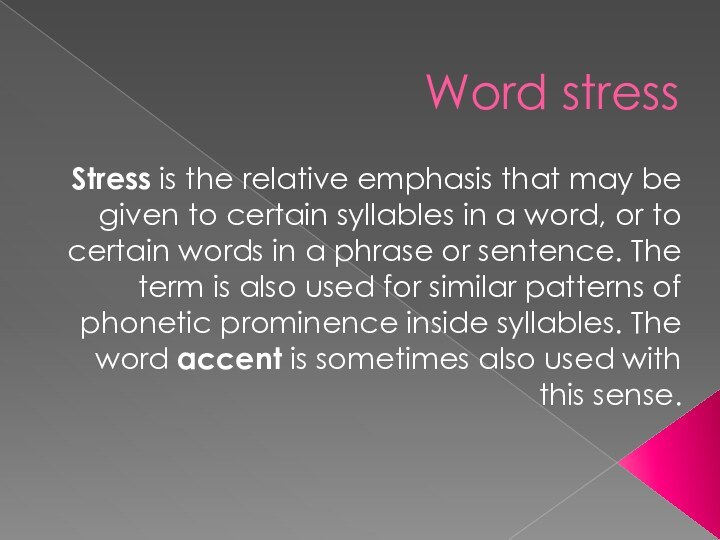
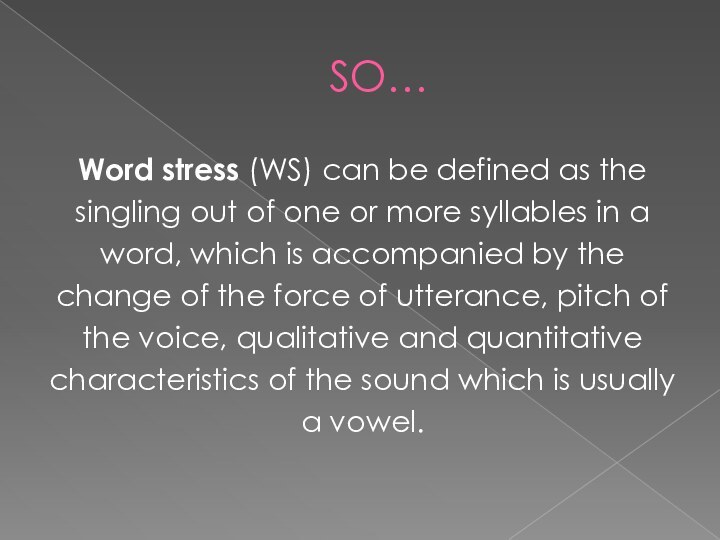
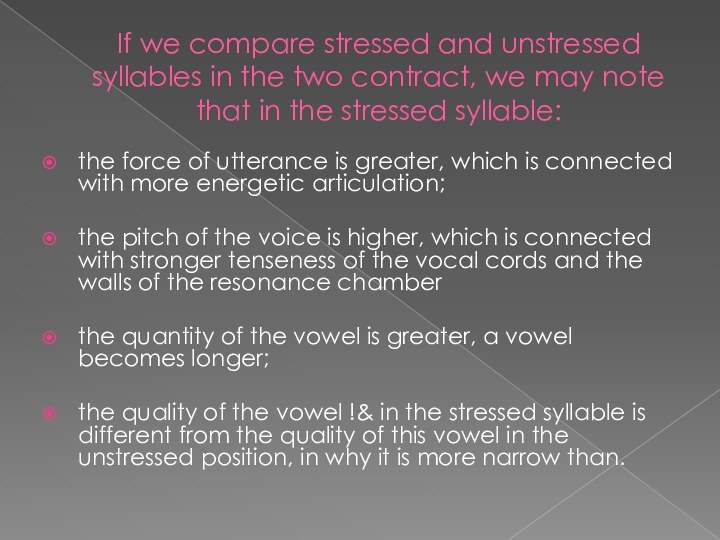
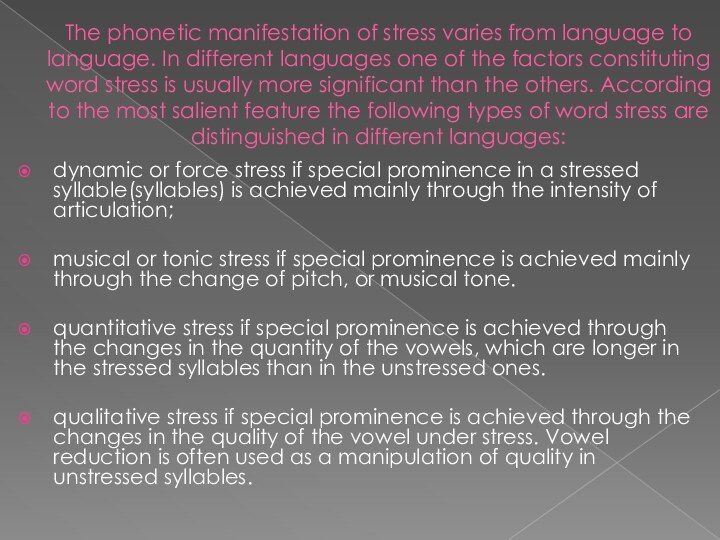
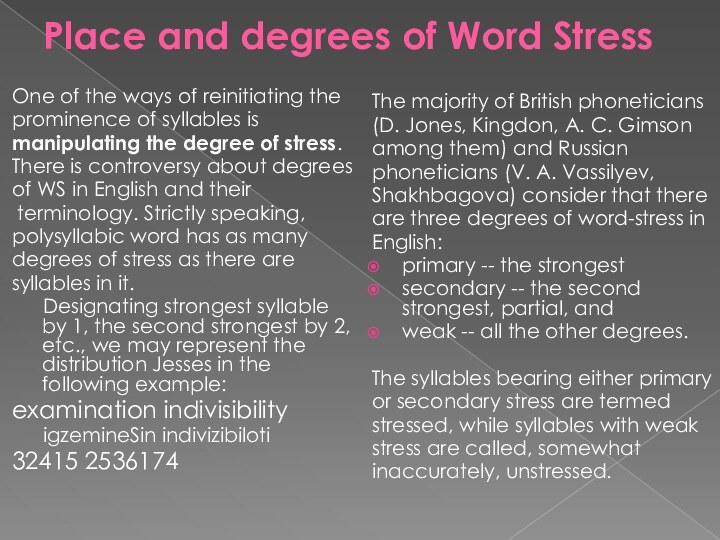
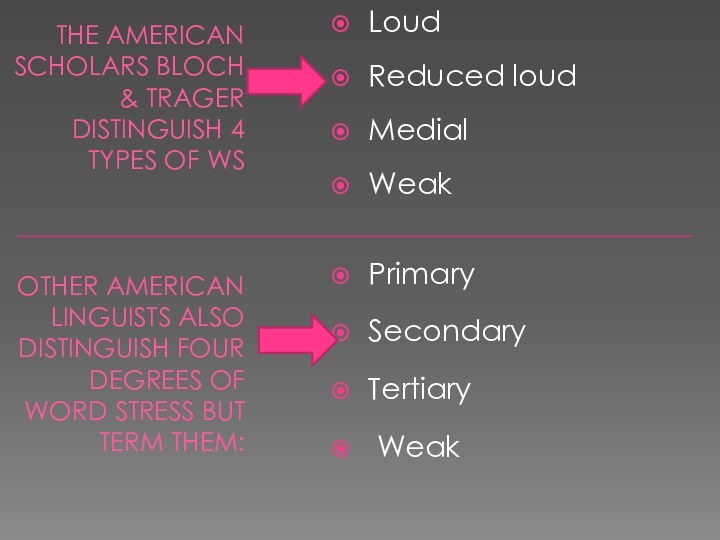
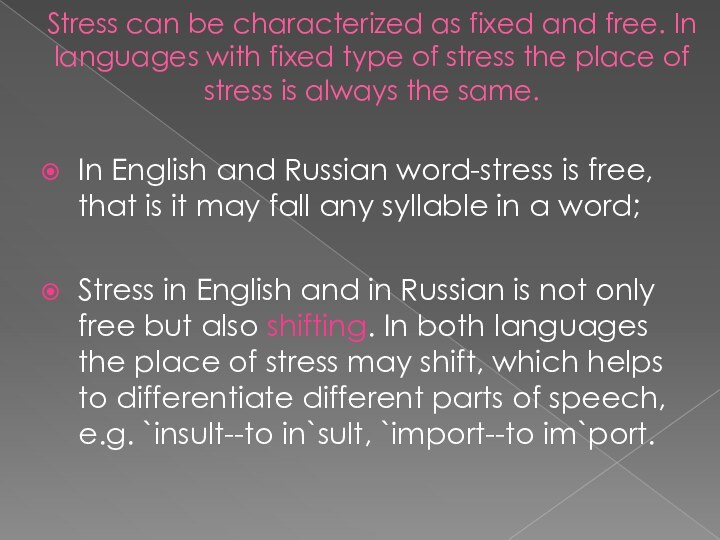
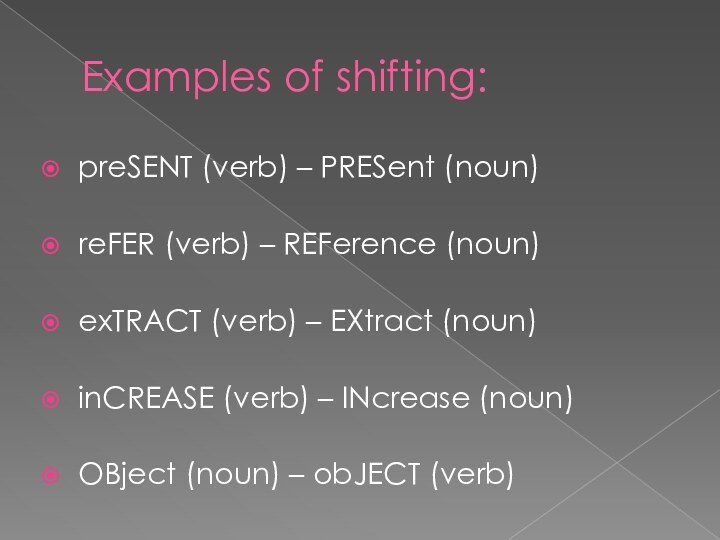
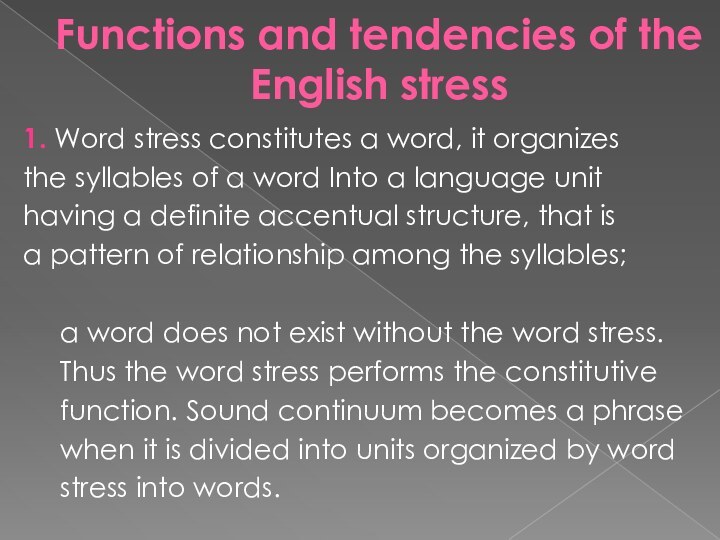
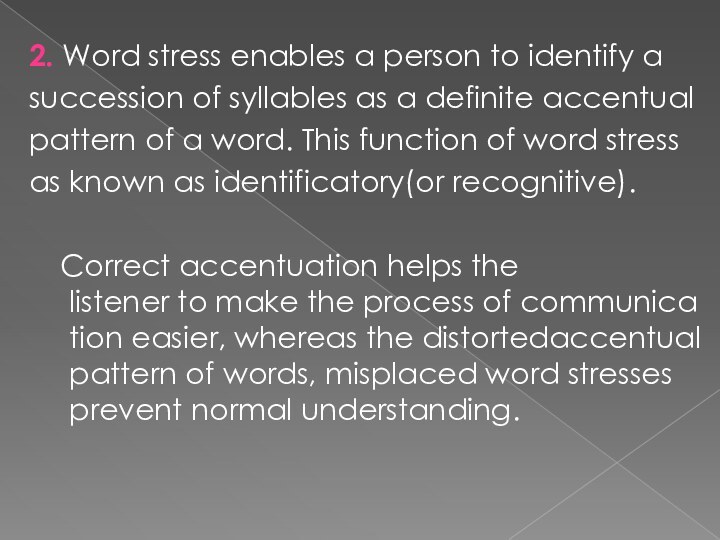
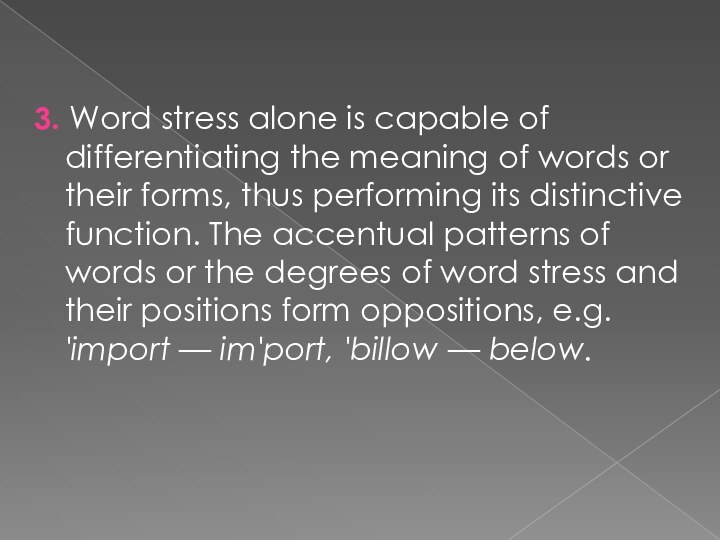
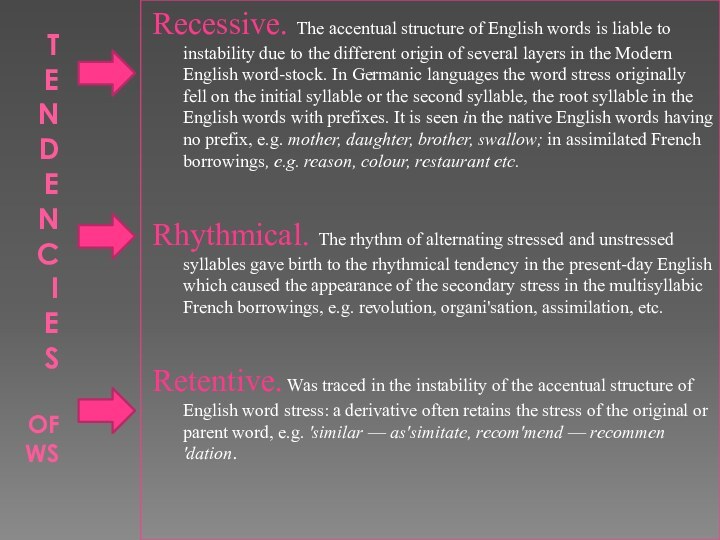
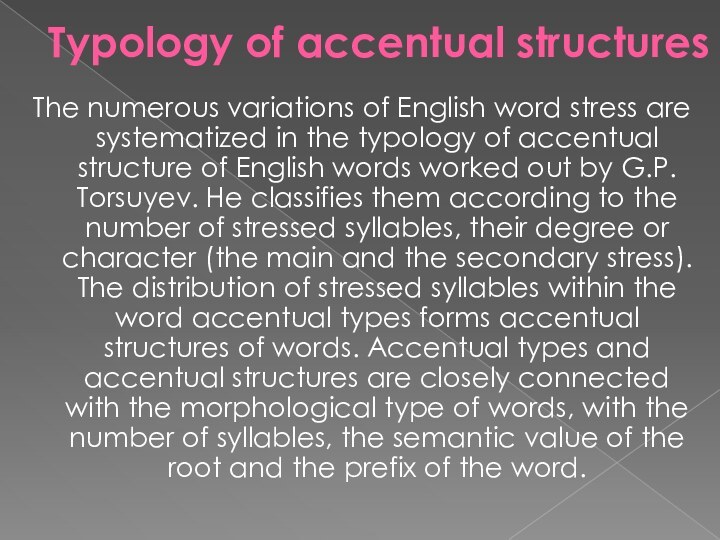
![Word stress The accentual types are:1. ['___]. This accentual type marks both simple and](/img/tmb/12/1161995/75f64a710d5afc4af11477b0c628d686-720x.jpg)
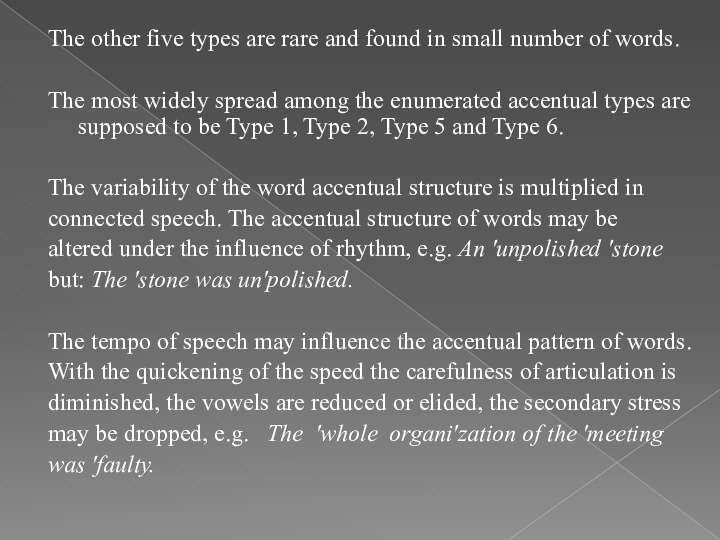

the force of utterance is greater, which is connected with more energetic articulation;
the pitch of the voice is higher, which is connected with stronger tenseness of the vocal cords and the walls of the resonance chamber
the quantity of the vowel is greater, a vowel becomes longer;
the quality of the vowel !& in the stressed syllable is different from the quality of this vowel in the unstressed position, in why it is more narrow than.
dynamic or force stress if special prominence in a stressed syllable(syllables) is achieved mainly through the intensity of articulation;
musical or tonic stress if special prominence is achieved mainly through the change of pitch, or musical tone.
quantitative stress if special prominence is achieved through the changes in the quantity of the vowels, which are longer in the stressed syllables than in the unstressed ones.
qualitative stress if special prominence is achieved through the changes in the quality of the vowel under stress. Vowel reduction is often used as a manipulation of quality in unstressed syllables.
The majority of British phoneticians
(D. Jones, Kingdon, A. C. Gimson
among them) and Russian
phoneticians (V. A. Vassilyev,
Shakhbagova) consider that there
are three degrees of word-stress in
English:
primary -- the strongest
secondary -- the second strongest, partial, and
weak -- all the other degrees.
The syllables bearing either primary
or secondary stress are termed
stressed, while syllables with weak
stress are called, somewhat
inaccurately, unstressed.
Loud
Reduced loud
Medial
Weak
Primary
Secondary
Tertiary
Weak
In English and Russian word-stress is free, that is it may fall any syllable in a word;
Stress in English and in Russian is not only free but also shifting. In both languages the place of stress may shift, which helps to differentiate different parts of speech, e.g. `insult--to in`sult, `import--to im`port.